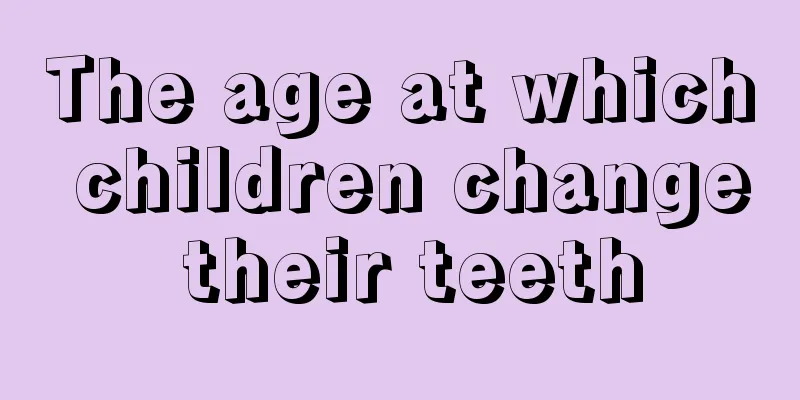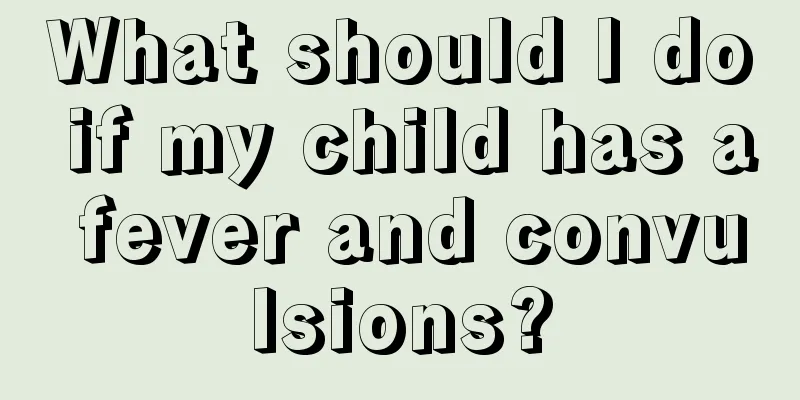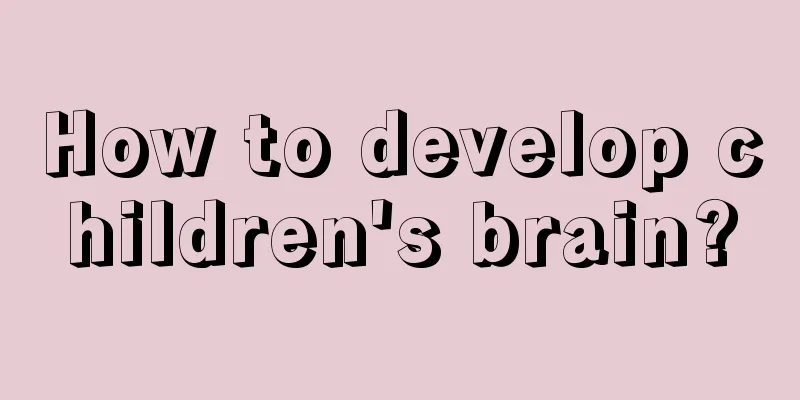The age at which children change their teeth

|
We all know that when children are in school, their first deciduous teeth grow one by one. After the deciduous teeth grow out, the children have to go through a process of tooth replacement. Because the deciduous teeth are not very strong, they need to be replaced with stronger teeth. Therefore, this tooth replacement process is more important. Parents must pay attention to their children's oral hygiene at this time. So how old are children when they change their teeth? Children usually start to lose their teeth around the age of 6. The physiological shedding of the first deciduous tooth usually occurs around the age of 6, but it can also occur as early as 4 years old, or as late as 7-8 years old, so there is no need to worry. Naturally fallen deciduous teeth have no roots and the fallen surface appears eroded. Parents should pay attention to observe and not confuse them with broken roots of deciduous teeth.People grow teeth twice in their life, namely deciduous teeth and permanent teeth. There are 20 deciduous teeth, which usually start to erupt around 6 months old and are fully grown at 2-3 years old. There are 28-32 permanent teeth (the number of wisdom teeth is 0-4), which usually start to grow around 6 years old and 28 are fully grown at 12-13 years old (wisdom teeth vary from person to person). Therefore, the tooth replacement period is usually between 6 and 12 years old. There are certain rules for tooth replacement. Simply put, it is a certain time and a certain order, following the principle of "left-right symmetry, first lower and then upper". Left-right symmetry, first lower and then upper refers to teeth with the same name. When children reach the age when they start to change their teeth, parents can use the children's tooth replacement sequence chart to find out which tooth will grow first and whether the baby teeth have fallen out. They can pay close attention to the children's tooth replacement and see a dentist regularly to ensure that the children grow neat and healthy teeth.Generally speaking, children's teeth change in a symmetrical manner, with the upper and lower rows of teeth changing first and then the lower ones. The order in which children replace their teeth is: (1) When children are 6-8 years old, they begin to grow their first permanent teeth, the central incisors, and the first molars also gradually grow out; (2) When children reach 8-9 years old, lateral incisors begin to grow; (3) Children aged 10-12 years old begin to grow bicuspids, starting with the first bicuspids, which are next to the lateral teeth;(4) When children are 11-12 years old, the upper and lower canines have gradually grown out; (5) Children aged 12-13 begin to grow second molars; (6) The last third molar, also known as the wisdom tooth, does not begin to grow until the child is 17 years old, and will continue to grow until the age of 21, which varies from person to person. |
<<: How to treat whooping cough symptoms
>>: Baby's nasal discharge is sticky like glue
Recommend
What should I do if my baby has a fever of 41 degrees?
A baby's cold and fever is enough to make par...
Autumn care for children: what are the precautions for autumn diarrhea
The so-called autumn diarrhea is a gastrointestin...
What to do if a three-month-old baby has a bad stomach
Babies' poor gastrointestinal function is a c...
What are the disadvantages of children not eating breakfast?
A day's plan begins in the morning. We need t...
Why does the baby retch when drinking milk?
Newborn babies do not have the ability to express...
What to do if your child's penis is itchy
Since many of the baby's organs are not fully...
Six major psychological defects of primary school students that parents should know
Nowadays, there are more and more single children...
How much can blue light reduce jaundice in one day
If your baby has pathological jaundice, you must ...
Diet therapy for the prevention and treatment of cerebral palsy in children
Cerebral palsy in children is a disease caused by...
What to do if your baby gets red bumps after eating kiwi fruit
Kiwi fruit is a fruit that can easily cause aller...
What should I do if my child has a fever of 405 degrees?
Children in their early childhood have relatively...
What are the methods for reducing phlegm and relieving cough for babies?
As children grow up, they are easily harmed by va...
What are the symptoms of dry eyes in children?
I believe everyone knows about the eye disease of...
Is sepsis serious in children?
When it comes to sepsis, many people think it is ...
What to do if your baby has myocarditis?
Myocarditis is a very common heart disease that c...









